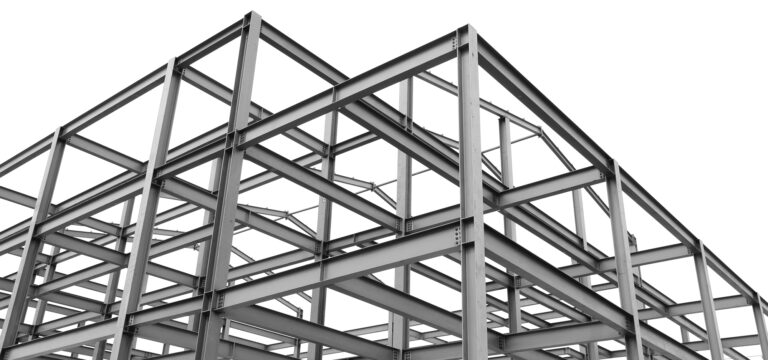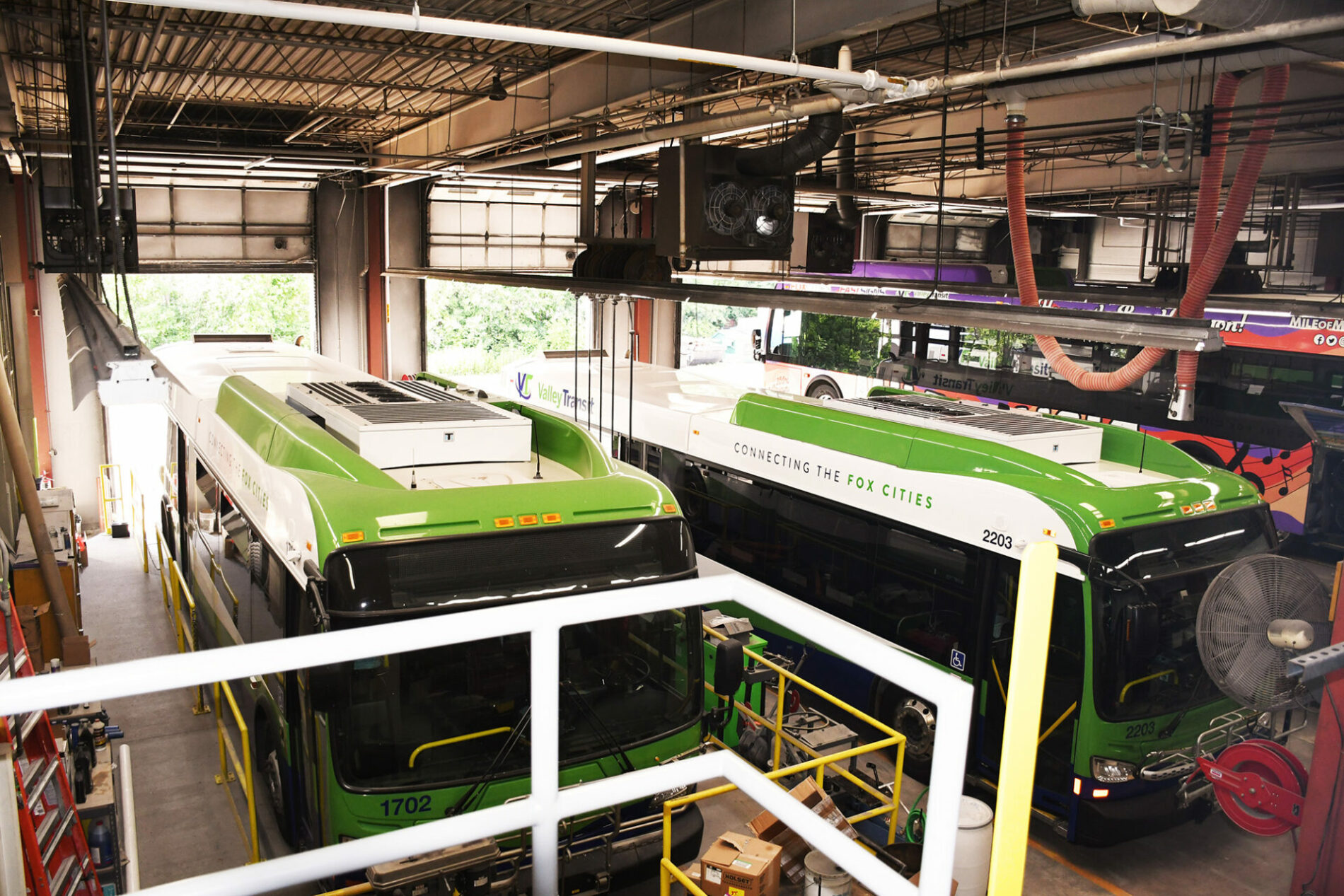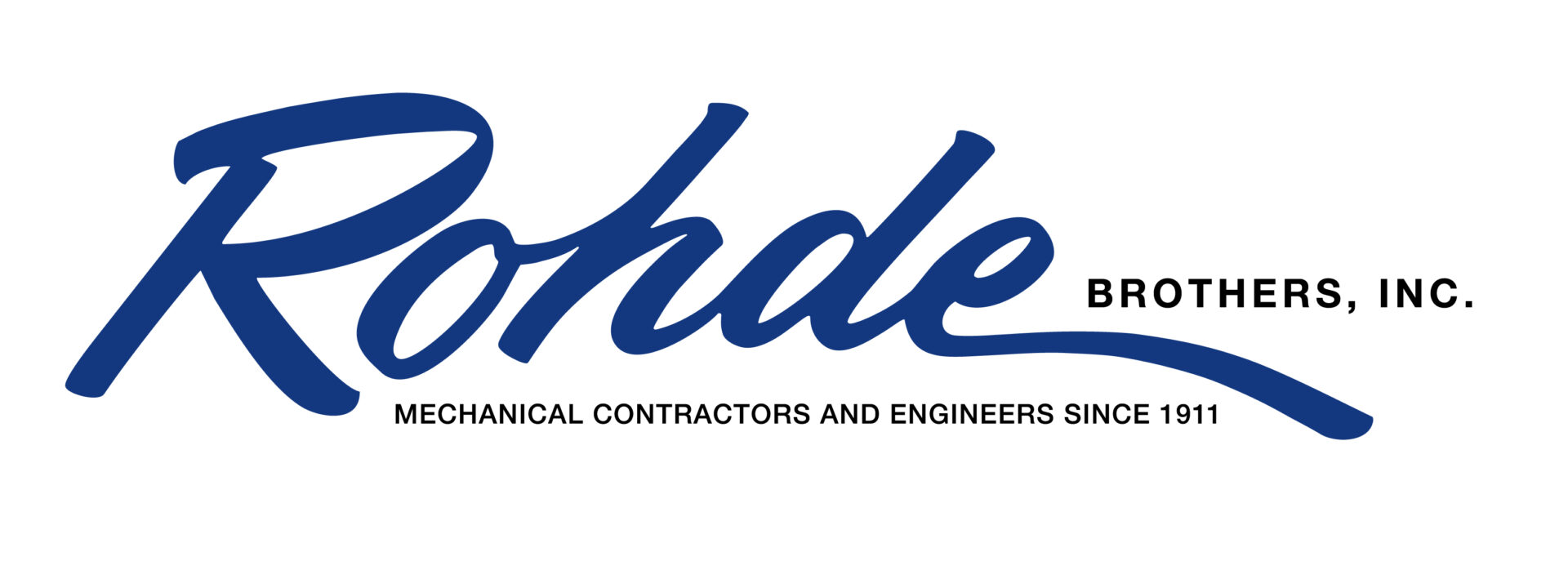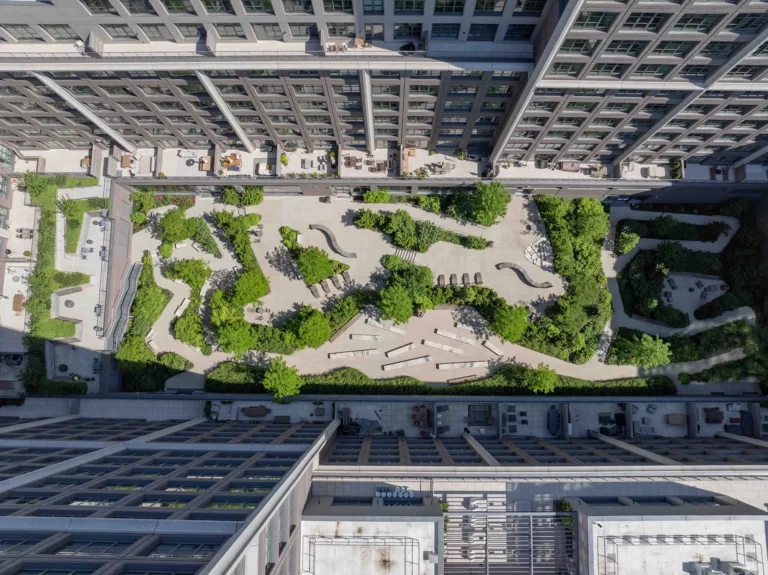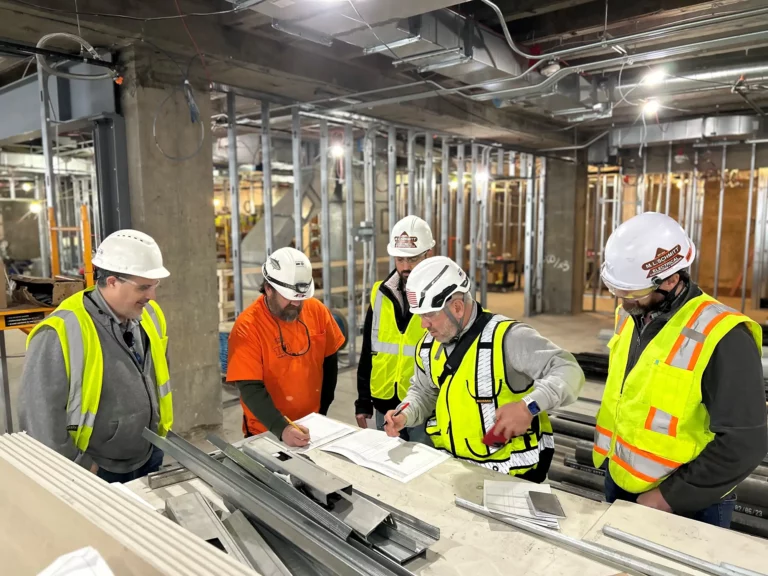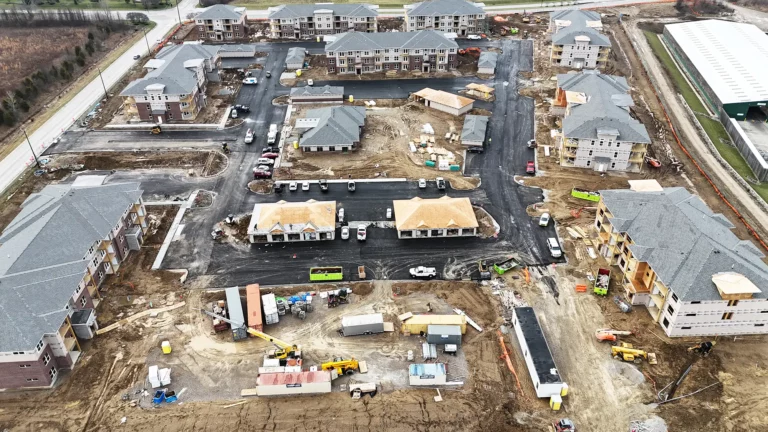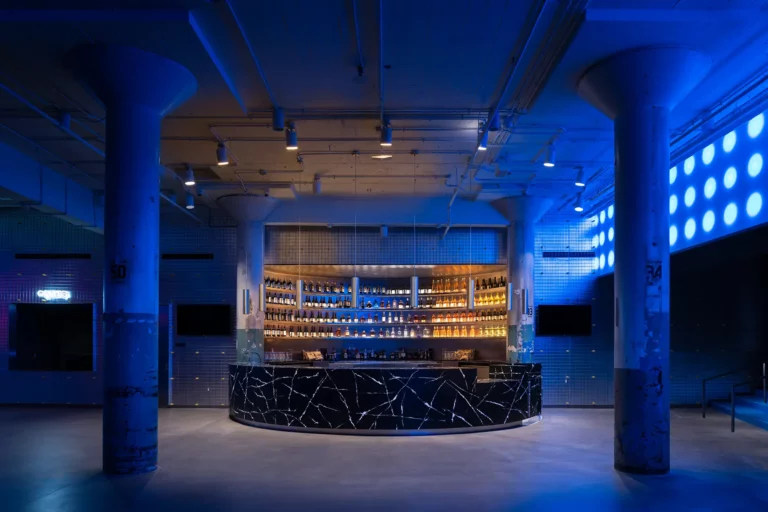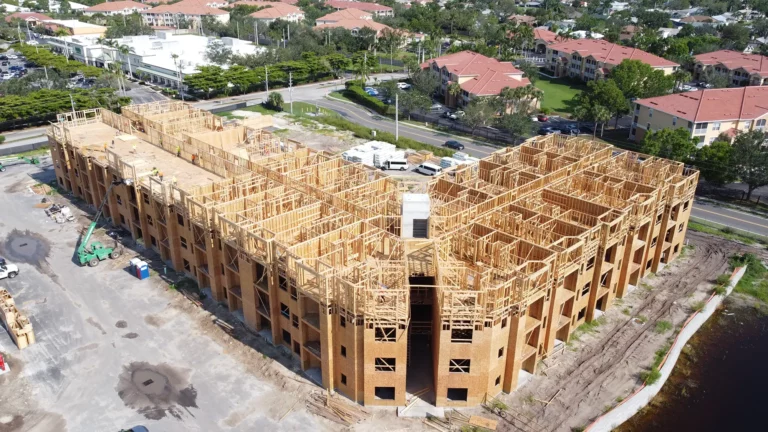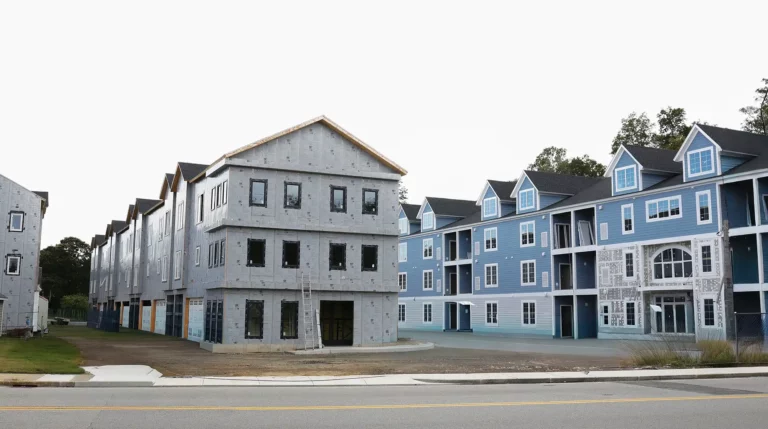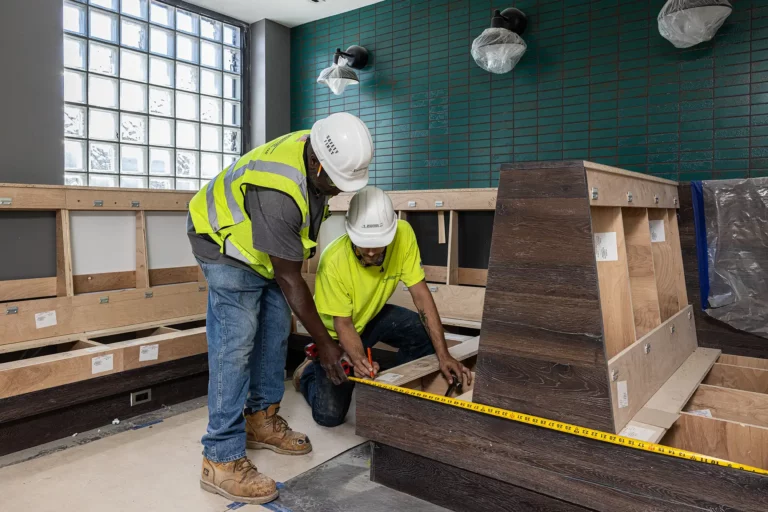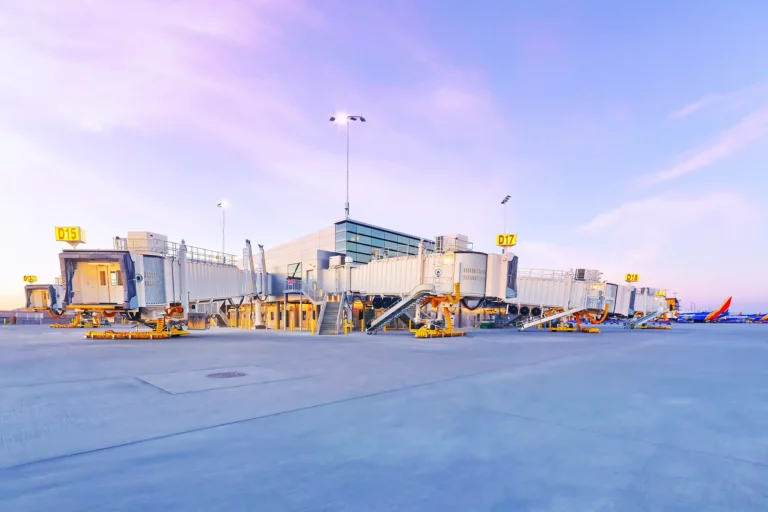Rohde Brothers, Inc. is a Wisconsin-based Industrial Mechanical Contractor and Engineering firm, providing innovative solutions to its clients since 1911. Throughout its four generations of existence, Rohde has maintained its status as a family-owned business, ever-bound to its historic roots and humble beginnings. But this is not to say that Rohde is a company stuck in the past, in fact its progressive approach to mechanical contracting and its willingness to embrace innovation suggests that the very opposite is true. Rohde serves the industry by designing, installing, and maintaining critical systems, while helping clients achieve their goals in terms of cost and energy efficiency through value engineering.
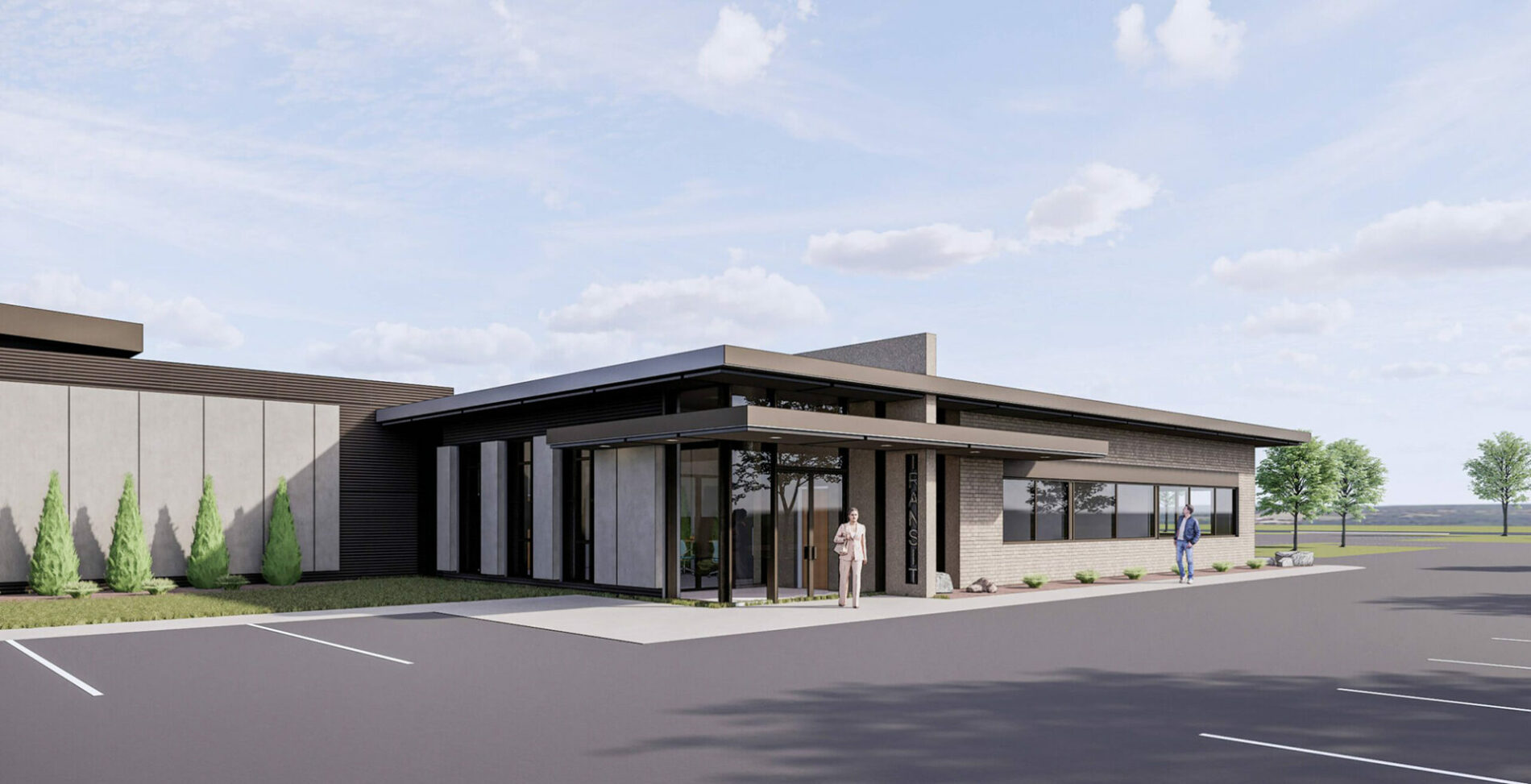
Rohde was owned through the seventies, eighties, and nineties by the father of current President and CEO, Mike Rohde. Mike and his brother managed the operation together from the nineties until about 2012 when Mike became the owner of record, at which point the company entered a transformative period. “Prior to Mike joining, the company did predominantly school, prison, and government work,” says Craig Bahr, Vice President of Rohde. “Mike, an engineer, took the initiative to grow other sectors of the business, and that’s when we started to do industrial refrigeration and providing clients unique design-build type solutions.”
Craig joined the company at the beginning of that transformative time and has been working alongside Mike developing new business and revenue. Craig, an environmental/civil engineer by training, joined the company to help the company expand into more unique, process-related sectors. Todd Hammond joined the company a few years later as a Principal Engineer, and this marked another milestone in Rohde’s story. “When I say mechanical contracting, I mean anything connected to pipe or duct work,” Craig says. “And that’s mostly in the industrial market and food processing industries.” Their current target marketing includes dairy and food production, manufacturing, cold storage, waste water treatment, water treatment, utilities, and pharmaceutical. Or as Craig puts it, “any type of mechanical system you can think of that has an industrial application.” The HVAC side of the business covers the heating and cooling of facilities, maintaining high air quality through plant ventilation, dust collection, oil mist capture, and humidity control by both dehumidification and humidification where needed. “Where there’s big, heavy equipment that needs to be cooled off, we can put in cooling systems. Where there’s processes that need heat, we can put in heating systems. We do traditional and industrial plumbing work, so water piping, waste drainage, water and waste treatment systems, hydronic water systems, and even gases like compressed air, nitrogen, oxygen, and argon delivery systems. We design and build process control systems which utilize Programmable Logic Controllers(PLCs) to turn operator instructions into actions. Our control engineers can integrate process controls into the customer’s industrial processes, thereby allowing us to monitor and trend our customers operation and let them know when they have problems before they even know it. Additionally, we often set up automatic emails to alert people when things get out of range. We also provide services to heavy manufacturing like foundries, die casting, sand-casting operations, and shops that do cutting and bending and forming of sheet metals.”
Rohde is striving to be on the right side of energy efficiency by helping customers to use energy more wisely through better engineered solutions. “We’re always looking at ways to recover things like biogas and excess heat and convert them into usable energy. Geothermal is a big one. There’s a lot of incentives from the federal government for geothermal and other energy programs, so we’re really trying to take advantage of those.” When Rohde first got into geothermal it was during a time when climate change was less political and helping the client’s bottom line was the focus. “Gas prices were abnormally high and it made sense economically. Now, there is a push for decarbonization and it’s the climate change issue that’s driving interest.
Appleton Valley Transit is a geothermal project for a bus terminal and bus maintenance garage for the city of Appleton. The project involved remodeling and adding on to their existing facility and retrofitting the HVAC systems to a geothermal based heating and cooling system. We drilled vertical wells, connected them up to a geothermal loop in the building which was then hooked to heat pumps that are used for heating and cooling the space.”
“Appleton Valley Transit is a geothermal project for a bus terminal and bus maintenance garage for the city of Appleton. The project involved remodeling and adding on to their existing facility and retrofitting the HVAC systems to a geothermal heating and cooling system.”
Food manufacturing has led Rohde into the dairy industry which is abundant in Wisconsin. This includes the manufacturing of butter, whey, and all kinds of cheese. “We’re in the dairy state where there’s lots of opportunity for cheese and food manufacturing,” says Craig. Rohde performed design-build on phase one and two of a new Oostburg facility for Master Gallery Foods, a food processing company that chunks, slices, shreds, and packages the cheese products into the bags we see on our store shelves. This project showcases Rohde’s unique skills in the food processing industry, as well as its commitment to energy-efficiency. “It included a unique geothermal system that was a little different because of the heating and cooling centered around process related loads,” Craig says. “We worked very closely with the Plant Engineer and the Facilities Manager who were designing the facility. He wanted to do as much as he could to conserve energy and to share energy between different systems. We therefore looked at the process and the office areas simultaneously. We’re using the heat from the refrigeration system that’s used to keep all the coolers cold and all the process rooms where they’re doing the cutting and shredding. All that refrigeration equipment rejects a lot of heat, so that heat is then put into a geothermal loop. We’ve got cooling from air compressors and from hydraulic compressors connected to that loop. In summertime, heat is rejected into a pond using coils of pipe. In the wintertime that same loop is also connected to their office HVAC equipment where heat pumps can take advantage of that heat and use it for heating the office space. Another interesting aspect to this was thermal storage. We looked at how the cooling load goes up and down throughout the day and then we added a slush generator with ice storage to cover the peaks of cooling demand, and that way we can downsize the capital investment in refrigeration equipment.”
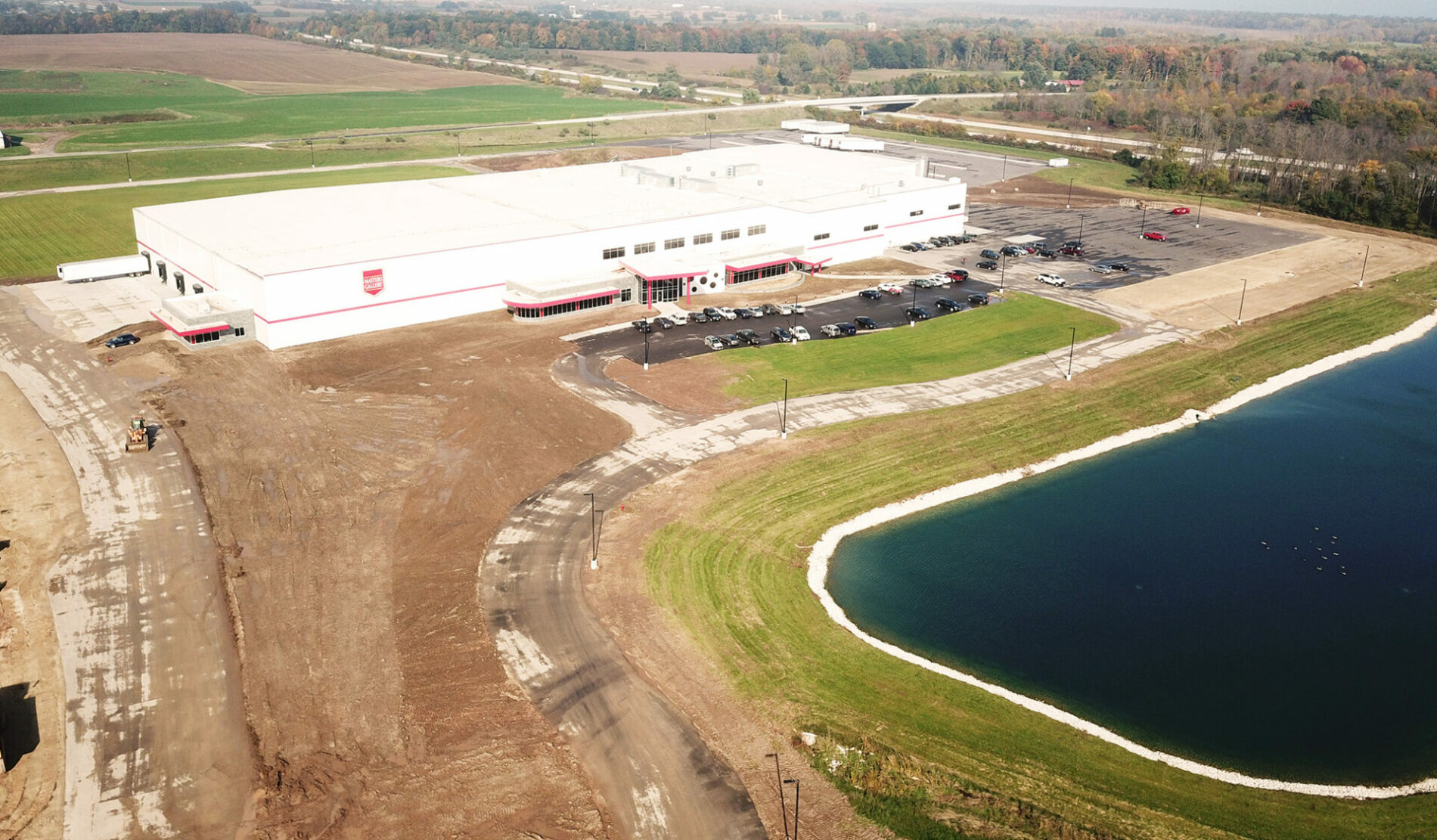
Rohde is not afraid to try new things, as can be seen in its product side of the business which provides chillers, heat pumps, nitrogen generation systems, and membrane separation. “Going back a few years we started building chillers, which is unique for a mechanical contractor. Usually, chillers are made by the big companies like Trane and Johnson Controls. We make chillers for the more demanding applications in the food processing industry. It’s unique in the food industry that you must run refrigeration in the winter, so our chillers are industrial and robust to meet the demanding needs. Most common refrigeration units are designed to take the winter off, so it’s hard to make them run in the cold ambient temperatures. We’ve found ways to tweak them so that these systems will function regardless of how cold it is outside. We’ve also found when supply chains are tight, we can build industrial refrigeration systems in far less time than the big-name brands. Often saving our customer’s project schedules. We’ve also built membrane separation systems for a few different applications, for example in the CBD market for recovering ethanol, and in concentrating buttermilk for a butter processing facility. Anytime you need to separate liquids from a product, membrane filtration is an opportunity to do it more cost effectively than traditional techniques. Membrane filtration is kind of size selective, so you’re separating molecules that are bigger than others with a filter membrane. We’ve also recommended and installed nitrogen generation systems as a method for clients to save money by generating their required nitrogen themselves on site. With on site nitrogen generation, the owner no longer has to transport, unload, store, and manage their inventory of liquid nitrogen atminus 320 degrees Fahrenheit.”
Rudy McCormick, Marketing Manager at Rohde, speaks about how 2023 saw the addition of 11,000 square feet of stainless-steel manufacturing space to the existing shop in Plymouth. “It’s got forty tons of bridge crane lifting capability, and that’s increased our throughput on the metal fabrication side of the business.” This space allowed for Rohde to take on projects that it previously had to turn down due to size. “And that was really driven by our customers,” Craig adds. “We have more and more customers that are asking for bigger things. Before the addition, we had to turn away some bigger projects that we just didn’t have the ability to do with the space we had. The bigger space allows us to do more things.”
This addition puts Rohde on a sustained growth trajectory as they move into the future. “We’re looking to grow at about a 10% pace over the next few years,” says Craig. “Not extreme growth, but steady growth. The municipal water and wastewater market is picking up for us and we’re excited about continuing work in that market. We want to keep a stable business growing while we keep pursuing design build opportunities and pushing towards energy efficiency and geothermal. It looks very encouraging, very promising. We have a lot of great customers that have stuck with us over the years and we’ve stuck with them over the years.” Reflecting on this, Rudy says that “we try and be a partner to our customers, providing solutions, value and efficiency where we can. We offer a 24/7 emergency service with technicians on call all the time for clients who have a service contract with us, and that could be anything from HVAC to a broken pipe.” “We’re exploring new opportunities as our clients challenge us with new questions,” Todd adds. “We focus a lot on being solution providers, so we get a lot of crazy ideas, new thoughts, people saying have you tried this? And we try to then bring these ideas to fruition in the form of completed projects.”
“You will find us is where jobs get more complex,” says Rudy, wrapping things up and perfectly capturing the true essence of the Rohde story. “When other contractors shy away because of complexity, we roll up our sleeves, take things on and get things done.”








